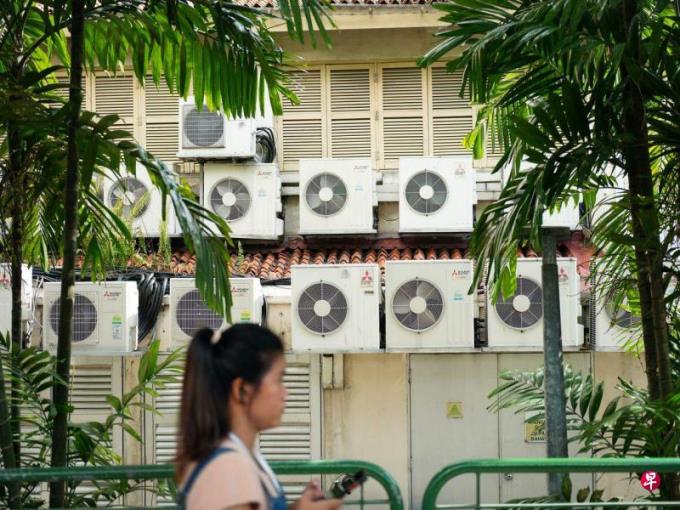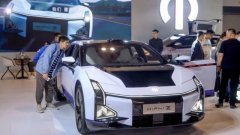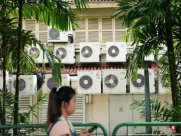
The recent weather is hot like a steamer. Even if there are occasional thunderstorms, the coolness is brief.In such a cool summer home office, if you do not open the air -conditioning, take at least three or four baths in a day, and you can not even do it completely.
As the extreme weather brought by climate change is becoming increasingly severe, the air -conditioning that can quickly dispel heat and heat and cool down has changed from luxury goods to a necessity of life, especially in tropical island countries such as Singapore.According to the third national climate change research in Singapore, there will be more hot days in the future. It is expected that at the end of this century, the average daily temperature may rise up to 5 degrees Celsius; in the worst high carbon emissions, there may be as many as 351 days a year.The highest temperature will exceed 35 degrees Celsius.
However, not everyone has the conditions to install the air -conditioner at home.According to the family expenditure survey report released by the Bureau of Statistics 2019, about 20%of the Singapore families have not installed air -conditioners, and only 25%of families living in the first or second -bedroom house are equipped with air -conditioning.In contrast, the ratio of private houses with air conditioners is close to 100 %.
Faced with global warming and climate shock, providing energy and equipment or electricity supply to cool down (and cold) is the basic needs of maintaining human life and health in contemporary society.Among them, the most vulnerable to climate change is often a group of more weak society, economy, and physiological, including children with low -income families.
For them, whether during the day or night, the cool environment can not only reduce the risk of high temperature -related diseases, but also help them concentrate their attention, concentrate on learning, improve sleep quality, develop physical and mental health development, develop physical and mental health development, develop physical and mental health development, develop physical and mental health development, develop physical and mental health, and develop physical and mental health.It is beneficial.From another perspective, in a sense, air conditioning may be the same as education. It is a "equalizer" that closes the gap between the rich and the poor and promotes social mobility.
Although the installation of air -conditioning is the most effective and the most direct cooling method, such "summer artifacts" are also the accomplices of global warming.The air -conditioner is not only a large electricity household, accounting for a quarter of the average electricity consumption of local ordinary families. Most of them still use compressor and chemical refrigerant, which increases greenhouse gas emissions and exacerbates urban heat island effects.
The World Economic Forum estimates that if it is not controlled, at the end of this century, carbon emissions related to air -conditioning may cause global temperature to rise by 0.5 degrees Celsius.There is no doubt that the use of air -conditioning machines will form a vicious circle: the hotter the earth, the more people need the air conditioner; the more air -conditioning machines, the more hot the earth.
Therefore, how to resist heat in the way that takes into account the environmental sustainability and social justice, especially to create a cool indoor environment for the disadvantaged group without exacerbating the greenhouse effect, it is the official priority.
A few days ago, some environmental experts voted for the media and suggested that the government is the first new group of houses in the future. Installation has taken the lead in the central refrigeration system implemented in Dengjia New Town.The system principle is to concentrate the refrigeration equipment of each family to the rooftop of the group. The cooling water flows from the rooftop to the air -conditioning of the households from the rooftop to achieve the effect of energy saving and environmental protection.With the continuous progress of science and technology, renovation and modification of old houses, supplemented by targeted subsidies, allowing low -income families to benefit from such central air -conditioning systems, maybe it is not impossible.
National Development Minister Li Zhisheng mentioned at the 60th anniversary of the Greening Movement in Singapore last year that the founding Prime Minister Li Guangyao has always regarded greening as a social balancer.He believes that letting ordinary people, not just the rich, can contact green plants and green space.It is believed to help people cool down and provide a comfortable and cool indoor environment for disadvantaged groups. I believe it is also an extension of this idea.



